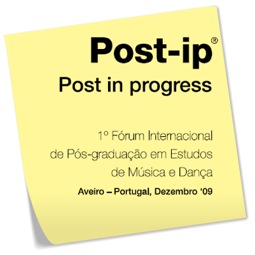Eu vou mas volto, diferente! – (Re)visualização e legitimação da cabo-verdianidade numa viagem a Cabo Verde
Resumo
A implantação do regime democrático em Portugal, a seguir ao 25 de Abril de 1974, define também um período durante o qual diversas organizações e associações de carácter humanitário, em especial de perfil não governamental, vieram a desempenhar um papel fundamental na luta por direitos de cidadania e de igualdade de determinadas comunidades e grupos sociais minoritários. Questões de raça, etnia, migração, género e identidade, inicialmente vistas como desigualdades de segundo plano, foram, ao longo de 35 anos, ganhando visibilidade e subindo numa hierarquia política que sempre teve como prioridade a diluição das desigualdades sócio-económicas. A actividade da Associação Cultural Moinho da Juventude, sedeada no Bairro do Alto da Cova da Moura e fundada a 9 de Junho de 1987 é um exemplo deste processo longo e transformador. Actualmente, mostrar a diferença no Bairro do Alto da Cova da Moura (Kova M) é, também, uma forma de expor o orgulho de ser cabo-verdiano. E esta atitude é, em grande medida, resultado da acção daquela associação e dos seus mentores.
A música, pela sua natureza performativa, é particularmente propícia à exposição da diferença. Assim, esta comunicação procura mostrar, através de uma investigação desenvolvida no Kova M sobre a prática performativa Kola San Jon, como os comportamentos em torno da música constituem, efectivamente, o paradigma de um processo de legitimação da diferença. A natureza polissémica desta performance, que incorpora a música, a dança, a voz e os artefactos mostra o poder deste processo musical e ritual.
Viagem a Cabo Verde é o nome de uma apresentação multimédia, construída como memória de um itinerário que a investigadora acompanhou desde a Amadora até Cabo Verde. Neste trajecto, realizado em 2008, a (re)visualização dos lugares, construiu validações e a certeza de que Eu vou mas volto, diferente!
Referências
Appadurai, Arjun (2009) “Diálogo, risco e convivialidade” in Fundação Calouste Gulbenkian (Org.) (2009) Actas Conferência Podemos viver sem o outro? As possibilidades e os limites da interculturalidade. Lisboa: Edições Tinta da China. (pp. 21-38)
Araújo, Samuel et. allia (2006) “Conflict and Violence as Theoretical Tools in Present-Day Ethnomusicology: Notes on a Dialogic Ethnography of Sound Practices in Rio de Janeiro” in Ethnomusicology. Vol (50-2) (pp. 287-313)
Araújo, Samuel; Paz, Gaspar; Cambria, Vincenzo (orgs.) (2008) Música em Debate: Perspectivas interdisciplinares. Rio de Janeiro: MAUAD.
Araújo, Samuel (2008) “Música em tradição oral - o papel dos arquivos” in Araújo, Samuel; Paz, Gaspar; Cambria, Vincenzo (orgs.) (2008) Música em Debate: Perspectivas interdisciplinares. Rio de Janeiro: MAUAD. (pp. 31-42)
Bhabha, Homi K. (2008) The location of culture. New York: Routledge.
Cambria, Vicenzo (2008) “Novas estratégias na pesquisa musical: Pesquisa participativa e Etnomusicologia” in Araújo, Samuel; Paz, Gaspar; Cambria, Vincenzo (orgs.) (2008) Música em Debate: Perspectivas interdisciplinares. Rio de Janeiro: MAUAD. (pp. 199-211)
Hall, Stuart; Gay, Paul du (1996) Questions of cultural Identity. London: Sage Publications.
Hobsbawn, Eric; Ranger, Terence (Eds.) (2008) The Invention of Tradition. Cambridge: Cambridge University Press.
Horta, Ana Paula Beja (2008) A Construção da Alteridade: Nacionalidade, Políticas de Imigração e Acção Colectiva Migrante na Sociedade Portuguesa Pós-Colonial. Lisboa: Fundação Calouste Gulbenkian e Funadação para a Ciência e Tecnologia.
Nettl, Bruno (2005) The study of Ethnomusicology: Thirty-one issues and concepts. Urbana, Chicago: University of Illinois Press.
Nettl, Bruno (2008) “Antropologia da Música/Antropologia musical” in Araújo, Samuel; Paz, Gaspar; Cambria, Vincenzo (orgs.) (2008) Música em Debate: Perspectivas interdisciplinares. Rio de Janeiro: MAUAD. (pp. 25-30)
Ribeiro, António Pinto (2009) “Introdução” in Fundação Calouste Gulbenkian (Org.) (2009) Actas Conferência Podemos viver sem o outro? As possibilidades e os limites da interculturalidade. Lisboa: Edições Tinta da China. (pp. 15-20)
Ribeiro, Jorge Castro (2010) "Batuque" in Castelo-Branco, Salwa (eds) (2010) "Enciclopédia da Música em Portugal no Século XX". Lisboa: Círculo de Leitores. (pp. 133-135)
Ribeiro, José da Silva (2000) Colá S. Jon, Oh que sabe!. Porto, Cabo Verde: Edições Afrontamento/Ministério da Informação e Cultura de Cabo Verde.
Rodrigues, Moacyr (1997) CABO VERDE Festas de Romaria Festas Juninas. Mindelo, S. Vicente, Cabo Verde: Autor.
Sardo, Susana (1998) “A Pesquisa em Etnomusicologia e a problemática da identidade” in Revista Portuguesa de Musicologia. (pp.203-210)
Seeger, Anthony (2008) “Etnomusicologia/Antropologia da música - disciplinas distintas?” in Araújo, Samuel; Paz, Gaspar; Cambria, Vincenzo (orgs.) (2008) Música em Debate: Perspectivas interdisciplinares. Rio de Janeiro: MAUAD. (pp. 17-24)
Shils, Edward (1992) Centro e Periferia. Lisboa: Difel.
Sousa, Maria (2008) (coord) Toda a Memória do Mundo. Lisboa: Esfera do Caos Editores.
UNESCO (2002) “Universal Declaration on Cultural Diversity” in Records of the General Conference: Resolutions. Paris: UNESCO (volume 1, pp. 61-64)
Vilar, Emilio Rui (2009) “Apresentação” in Fundação Calouste Gulbenkian (Org.) (2009) Actas Conferência Podemos viver sem o outro? As possibilidades e os limites da interculturalidade. Lisboa: Edições Tinta da China. (pp. 9-14)
Discografia
Tavares, Sara (2009) Xinti. Haarlem: World Connection
Webgrafia
Segurança Social - http://www1.seg-social.pt/left.asp?01.03 (acedido a 17 de Outubro de 2010)
TRANSCRIÇÕES DE CAMPO: ENTREVISTAS E NOTAS DE CAMPO
Godelieve Meersschaert. Alto da Cova da Moura, 4 de Maio de 2009.
Direitos de Autor (c) 2010 Post-ip: Revista do Fórum Internacional de Estudos em Música e Dança

Este trabalho está licenciado com uma Licença Creative Commons - Atribuição-NãoComercial 4.0 Internacional.





